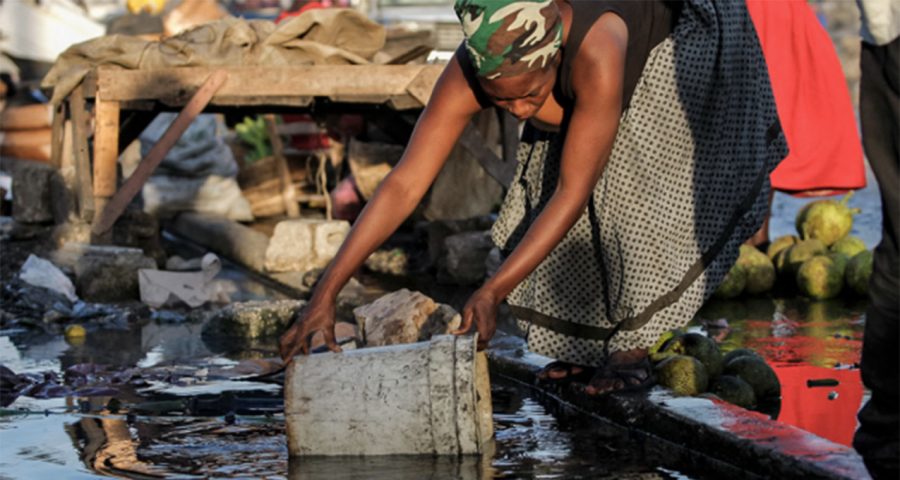
Cholera outbreak in Tshwane: Investigation launched
THE DEPARTMENT OF WATER AND SANITATION (DWS) HAS LAUNCHED AN INVESTIGATION INTO THE POSSIBLE SOURCE OF THE CHOLERA OUTBREAK IN THE CITY OF TSHWANE AND NGWATHE LOCAL MUNICIPALITY. This came after 23 people died and dozens others were hospitalised in Hammanskraal (Tshwane) and in Parys (Ngwathe), in May, 2023. “Technical teams from the Department of […]

THE DEPARTMENT OF WATER AND SANITATION (DWS) HAS LAUNCHED AN INVESTIGATION INTO THE POSSIBLE SOURCE OF THE CHOLERA OUTBREAK IN THE CITY OF TSHWANE AND NGWATHE LOCAL MUNICIPALITY.
This came after 23 people died and dozens others were hospitalised in Hammanskraal (Tshwane) and in Parys (Ngwathe), in May, 2023.
“Technical teams from the Department of Water and Sanitation (DWS) and the provincial and national Department of Health as well as relevant municipalities are carrying out water quality tests at distribution points and at water treatment works in areas where people have become infected,” the DWS said.
ALSO READ: Cholera: How to make sure you protect yourself from Cholera
The Department also engaged in the tracking and tracing of infections.
The Department warned that Cholera was not only spread through polluted water, but also through poor hygiene, eating contaminated food or the coming into contact with the faeces of an infected person.
While the original source of the waterborne disease had not been confirmed, the Department said it was highly likely that the outbreak was related to the pollution of water sources from the City’s Rooiwal Waste Water Treatment Works upstream of Hammanskraal.
CHOLERA
According to the department, the treatment plant had not been well-maintained for many years, and had insufficient capacity to deal with the inflow volume of waste.
The Department said the Rooiwal Waste Water Treatment Works was polluting the Apies River, which flows into the Leeukraal Dam from which water was abstracted by the City’s Temba Water Treatment Works.
ALSO READ: VIDEO – About 50 vehicles burn at 2023 Toyota Desert Race
“The Temba Water Treatment Works is supposed to clean the raw water abstracted from the dam and treat it so that it is fit for human consumption. However, the water in the dam is so polluted that the Temba Water Treatment Works is not able to treat the water such that it meets the required standards for drinking water.
“However, tests on the water from the Temba Water Treatment Works indicate that it does not contain cholera bacteria and that it can be used for other purposes such as personal hygiene, dishwashing and washing of clothes. For this reason, the City of Tshwane is using water tankers to supply the residents of Hammanskraal within the supply area of the Temba Water Treatment Works with drinking water,” the department explained.
A Green Drop report released by the department in 2022 indicated that the state of many municipal waste water treatment systems was deteriorating.
“This means that many municipalities are discharging effluent from the waste water treatment works which does not meet the specified treatment levels, which in turn is resulting in pollution of the rivers and dams from which municipalities and water boards draw water in order to treat it before supplying it to communities,” the department said.
DEPARTMENT
ALSO READ: Cholera Outbreak: Death toll rises to 26
The department emphasised that water boards and municipalities are required to conduct regular tests in line with South African National Standard (SANS) 241, issued by the South African Bureau of Standards on the treated water that they supply to households.
The public was urged to void consuming untreated water from rivers, dams, and streams, with the Department says water from these sources was not suitable for human consumption.
As part of efforts to manage diarrhoeal disease, government set up six field hospitals hospital in Kanana, Hammanskraal.
ALSO READ: City of Johannesburg intensifies cholera-monitoring amid outbreak
The six temporary tents were set up to immediately attend to people presenting with symptoms of dehydration, such as vomiting and diarrhoea.
At the temporary hospital, patients were given either oral hydration or intravenous hydration on the spot. Critical patients were immediately taken to hospitals in Tshwane for further management and admission. – SAnews.gov.za
Written by SAnews.gov.za for GCIS VuK’ZENZELE
